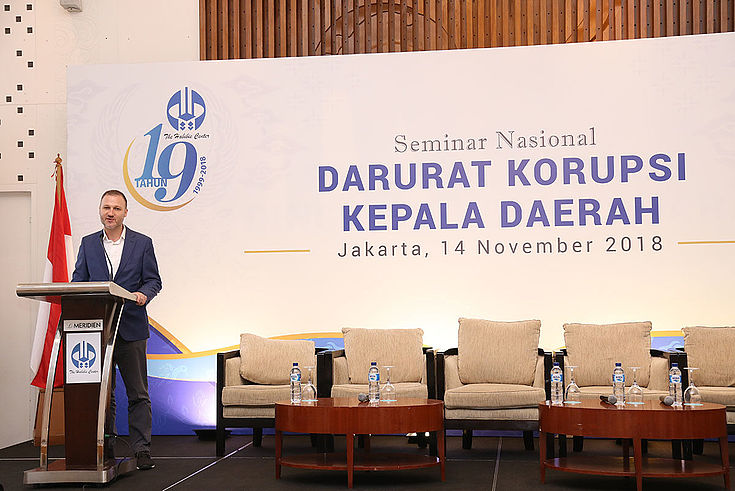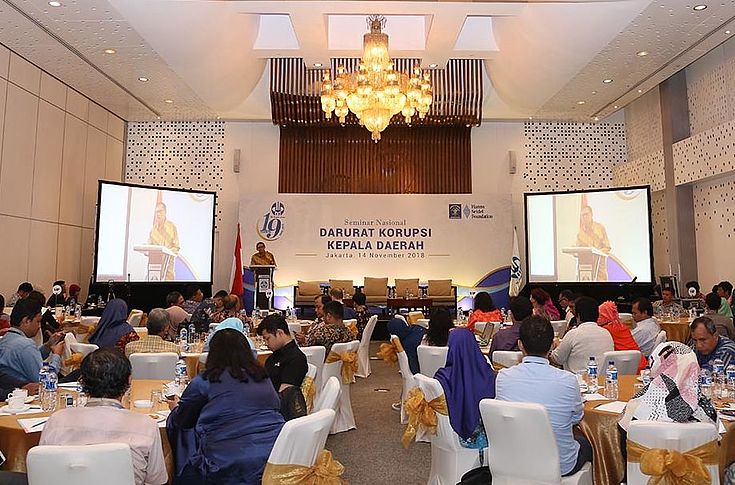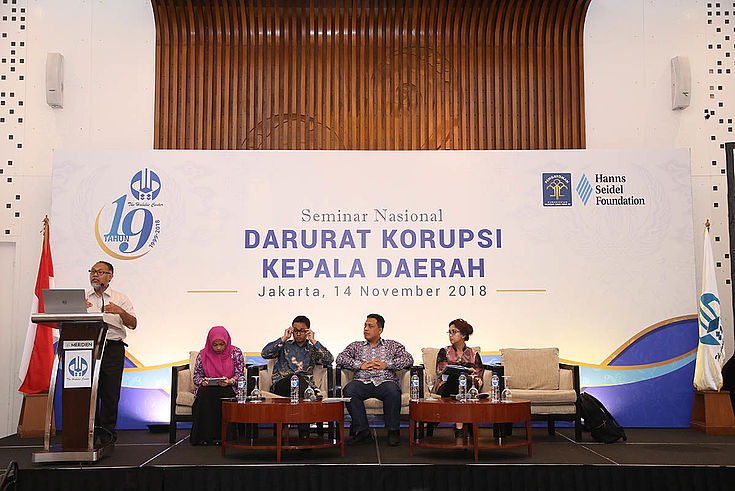Hanns Seidel Foundation Indonesia co-operates with the Habibie Centre for Democracy
Seminar on Corruption in Local Governments

HSF Resident Representative Dr. Daniel Heilmann delivers the opening remark.
HSF
Good Governance Practices Contribute to Indonesian Development
The seminar was attended by over 100 participants from civil society organizations. The panel included the former Commissioner of the Corruption Eradication Commission, a lecturer on sociology of University of Indonesia, researchers of the Habibie Centre, and the Director of the Consortium for Election and Democracy.
Although, according to statistical data, Indonesia has made significant progress regarding the eradication of corruption, it is still a prevalent problem. Indonesia is still categorized as a low middle income country. Moving towards the upper or high-income classification, Indonesia will need to keep and increase the existing growth rate of 5,2% per anno. This, however, must be achieved through clean and good governance practices.

The Keynote Speech was delivered by the Chairman of the Board of the Habibie Center Prof. Dr. Sofian Effendi.
HSF
Direct Election System
The seminar, inter alia, focused on the question whether the direct election of local governments by the people is the right choice. The direct election system is costly for the candidates. Once they are elected, the successful candidates tend to turn to corrupt practices for a payback on their investment. Another problem is that the political parties are not sufficient financially supported through the state budget.
The panelists explained to the audience that not only local governments heads are involved in corruption, but also the private sector and other high-ranking civil servants. It was concluded that direct or indirect election systems are not the only relevant factor for corruption. The speakers emphasized that a strong rule of law and application of fundamental rights is needed to improve the situation. The speakers then made recommendations on how to improve the system as mandated by the democratic system of Indonesia.

The expert panel discussing corruption on the level of local governments in Indonesia.
HSF
